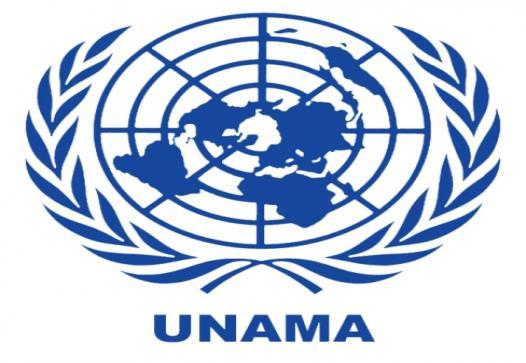KABUL (Pajhwok): Allegations by detainees of torture in Afghan detention facilities continue, with rights of detainees largely ignored, the UN said on Wednesday.
The allegations come In a bi-annual Torture Report released by the UN Assistance Mission in Afghanistan (UNAMA) and the Geneva-based UN Human Rights Office.
Torture and ill-treatment, prohibited under both Afghan and international law, persisted in the facilities of government agencies, the report said.
UNAMA recorded a three per cent reduction in allegations compared to the previous monitoring period.
“Torture can never be justified. It has lasting consequences for victims, their families and society,” remarked Deborah Lyons, the secretary-general’s special representative for Afghanistan.
She said: “I recognise the efforts made by some government ministries and Institutions, but much more needs to be done to bring this practice to an end.”
In particular, perpetrators must be held accountable to boost confidence in the rule of law, she stressed, saying this could be a contributing factor towards peace.
The report summarises the findings of monitoring by the UN of the treatment of people deprived of their liberty for security – or terrorism-related allegations between January 1, 2019 and March 31, 2020.
During the period, physical detention visits by the UN were suspended due to COVID-19. The report is based on interviews with 656 detainees, including 565 men, 6 women, 82 boys and 3 girls, in 63 detention facilities in 24 provinces of Afghanistan.
The report covers only government facilities — not those of the Taliban or other anti-government elements — due to lack of access.
The percentage of credible allegations of incidents of torture and ill-treatment committed by the Afghan forces was recorded at 30.3 percent — down from 31.9 percent for 2017-2018.
Allegations of torture in Afghan National Police (ANP) custody was 27.2 percent, a decrease from the previously recorded 31.2 percent.
A reduction in allegations of torture in National Directorate of Security (NDS) custody from 19.4 to 16 percent was noted.
The report highlights the important role played by internal mechanisms in preventing torture, especially NDS human rights officers visiting places of detention.
Similarly, efforts to prosecute the crime of torture under the 2018 Penal Code by the Anti-Torture Committee of the Attorney General’s Office are underscored.
Some sharp regional differences were noted in the number of allegations made by detainees. There was a particularly high number of allegations of torture and ill-treatment concerning the ANP in Kandahar, with 57.7 per cent of complaints.
The report also highlighted the disturbing reports of enforced disappearances allegedly linked to the ANP in Kandahar.
Considerable scope remained for improvement to safeguarding those rights, the report added. For example, in almost no instance of detention were detainees informed of their rights, able to access a lawyer, or went through medical examination, prior to questioning by officials.
Detainees’ ability to contact their families in early days after their arrests remained low, with 27.2 per cent in ANP custody and 19.7 per cent in NDS custody.
Nearly half of all persons detained by the ANP and NDS asserted that they were asked to sign or thumbprint a document without knowing its content.
The report expresses particular concern with the practice of solitary and incommunicado detention in NDS custody.
UNAMA recommended the creation of an independent national preventive mechanism on torture described in the Optional Protocol to the Convention against Torture.
Such a dedicated mechanism would have the authority and enhanced capacity and expertise to inspect all detention facilities, conduct follow up investigations and make detailed technical recommendations on prosecution of perpetrators and remedial measures.
Establishing such a mechanism would require concerted and sustained support from the Afghan Government and the international community.
UNAMA said it continued to observe the treatment of detainees and is working closely with Afghan authorities and international partners to bring positive change.
pr/nh/mud







GET IN TOUCH
NEWSLETTER
SUGGEST A STORY
PAJHWOK MOBILE APP